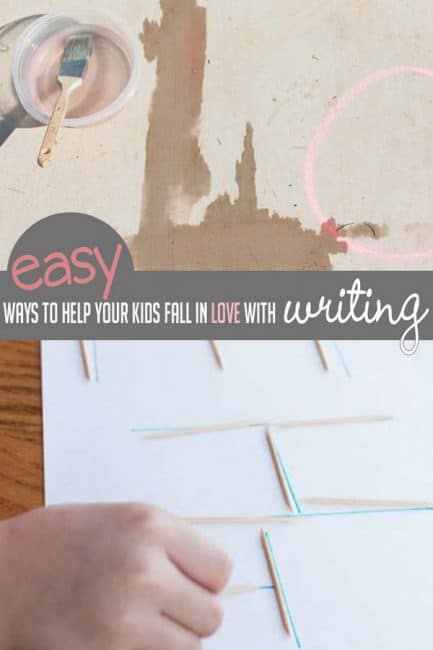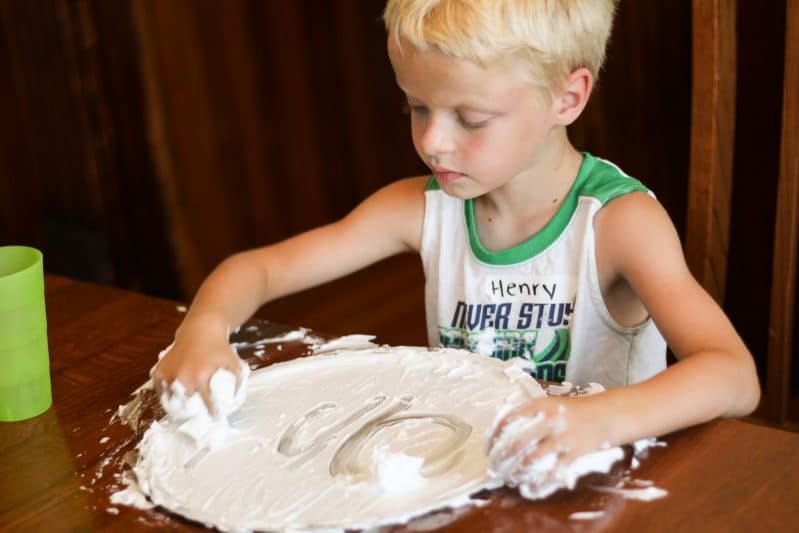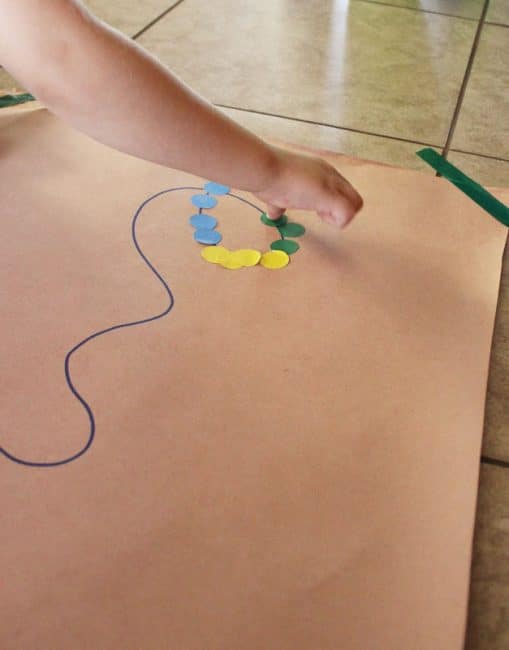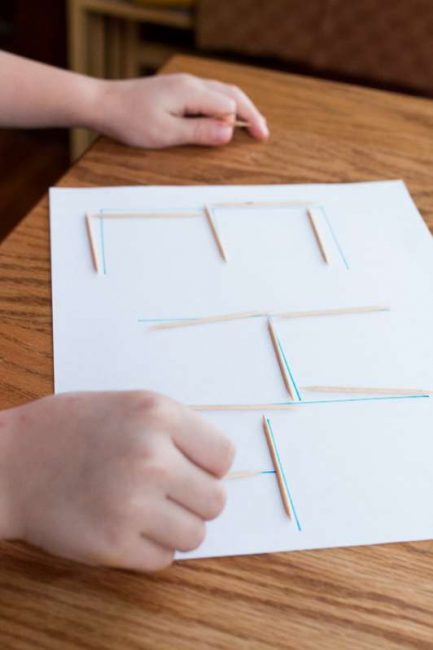
Click here to read Easy Ways To Help Your Kids Fall In Love With Writing on Hands On As We Grow®
Help your child fall in love with writing through creative, non-worksheet writing activities and ideas from Eveline Heston!
Even though your child learns writing basics in school, you as a parent are still your child’s first and most important teacher.
Writing practice at school alone might not be enough for your child. Sticking to those old school worksheets might even be burdensome and tiring.
Parents can work to foster their children’s writing at home as well. That can be extremely hard for everyone.
Let’s make it fun and creative!
Easy Ways To Help Your Kids Fall In Love With Writing
There are so many different ways and methods to help you teach and encourage your preschooler to write, but also have fun in the process.
Maybe these methods will help your child become a famous writer known for their unique words!
Let’s look at some of the most popular and most effective techniques of ABC teaching and learning to help your child fall in love with writing.
1. Name Association Game
For you to teach your child how to write and how to fall in love with this new skill in their life, you need to make it sound unique and special to them.
The first thing your child should learn how to write is their name.
Try these fun writing activity ideas!
By learning the letters in their name, a child will now able to connect things with those letters.
For example, if a kid’s name is Jake, you can use the letters in the name to teach him how to write and name other things.
J doesn’t only stand for Jake but also for jacket. The A in his name is the same as the A in apple.
The name association game can be played in other ways, too. Try drawing, alphabet songs, your kid’s favorite toys, etc.
By helping them to make a connection between their name and things in their environment, you are making it more relevant, more fun, and more logical for them to write.
2. Finger-Writing and Chalkboards
Tracing letters and repetitive writing tasks alone won’t help your child fall in love with writing.
Placing a child in front of a desk, in a chair and forcing them to spend hours rewriting the same letter is not super inspiring.
It is okay for the kid to have a writing station, but sometimes you need to create an entirely new buzz.
For example, let your kid write the letters with their fingers. Try using colors, shaving cream, even flour, and other food.
This will not only be fun and interesting for your child, but it also helps them really learn everything better and more clearly.
This method will also send the message that writing is a fun activity in general.
Another thing you can do is purchase a chalkboard. Chalkboards and whiteboards are excellent for children to learn to write.
They are also always fun because children can erase the board and start from scratch whenever they want.
Markers in any form are a ton of fun, too! Try a whiteboard with dry erase markers if you’re not a fan of chalk.
3. Fun Motor Skill Activities
There are several ways you can help your child fall in love with writing by building in fine motors skills activities.
For starters, provide your child with a variety of fun and colorful writing utensils, like crayons, pens, and markers. Then simply let your child draw and write whatever they want at first.
This will help them develop muscular coordination later on. Coloring books are also an excellent addition to these activities.
You can also use stickers to teach your child how to write correctly.
Use stickers to layout the basic shape of a letter. Your child will then have to connect the stickers in order to reveal which letter it is.
This is also an excellent practice for a child to remember the correct shape of the letter.
Another fun way to teach your child the beauty of writing is by using a writing tray with sugar, sand, or rice. These writing trays are extremely easy to make.
The most significant benefit of this activity is that it is comprised out of sensory parts, which will enable your child to develop a feeling for writing and holding pens.
4. Interactive Word Games
Even though many experts on child development do not suggest the use of technology for your child’s intellectual improvement, there are a lot of experts who do.
They believe that gadgets, like tablets, can help your child memorize quickly and develop the ability to conclude logically at a very young age.
You can use gadgets to provide your child with interactive word games, for example. These are types of games where your child will need to find a word hidden among random letters.
There are games which also provide an accompanying illustration, image, sound, or video on what the hidden word could be. This will help your child connect the visual aspects of the game with the actual words.
5. Activities With More Structure
Alongside activities that are based on games and toys, you can also mix in writing process activities that hold more structure.
As a parent, you can provide your child with a folder of prewriting worksheets. These are sheets that will help your child trace vertical, horizontal, and slanted lines.
Many worksheets are also fun! Parents can find a ton of completely free printables that you can easily download off the Internet.
You might consider laminating the worksheets. This will enable your child to write on the sheets over and over again since the marker can be quickly erased later on.
There are also many colorful tracing books that come with sheet protection. Or try maze books that are based on connecting letters to create words.
6. Each Day – A New Letter
Make sure your child is being exposed to a new letter each day.
This will create consistency in their learning without overwhelming them at the same time.
For this method to reach its full effect, you might consider getting a workbook with letters.
Alongside the workbook, make sure to provide your child with manipulatives and tools to work with. For example, try using buttons, sticks, beans, or pebbles.
Your child can use these manipulative to create letters or even numbers.
Usually, these workbooks come with extra sheets that contain tracing activities. These will help your child the uppercase and lowercase letters.
What are your favorite ways to inspire your child to fall in love with writing? Share your ideas in the comments!
Eveline Heston is a freelance writer who is educated on a wide variety of topics, such as child psychology, literature, and education. She is primarily interested in researching behavioral and developmental issues.






No comments:
Post a Comment